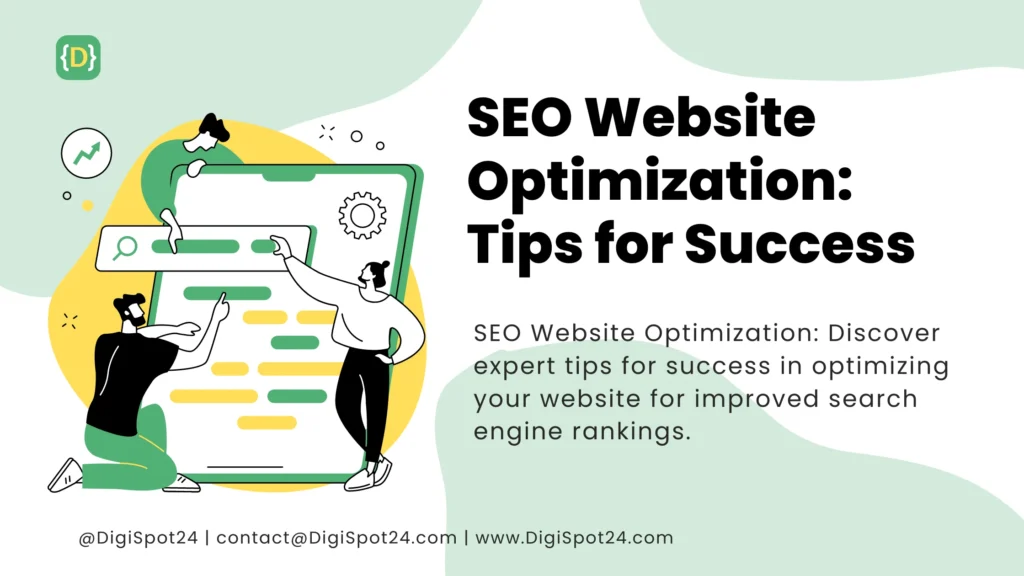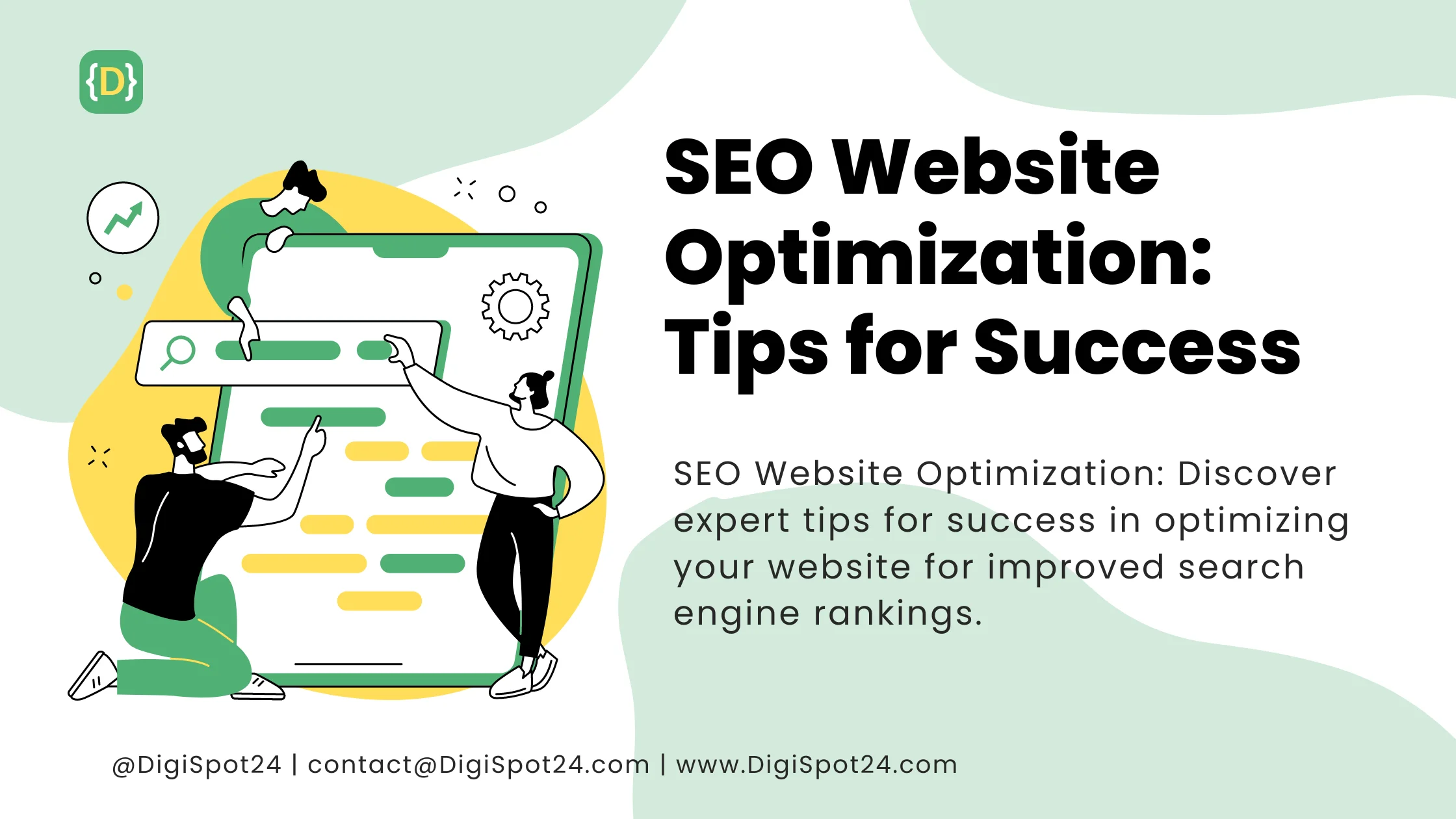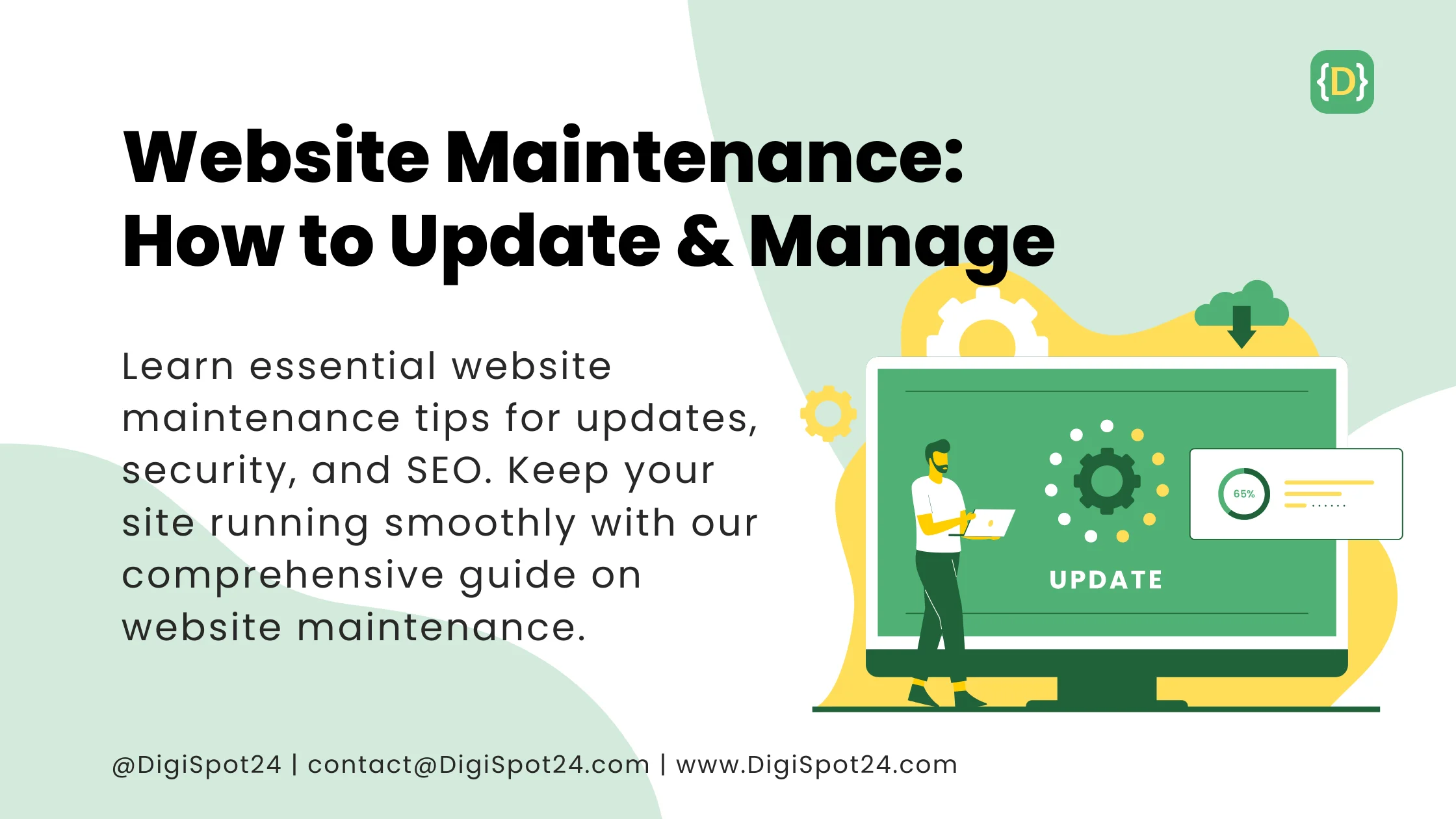SEO Website Optimization: Tips for Success
SEO website optimization is crucial for any website’s success in the digital realm. Effective strategies can boost visibility and drive organic traffic. In this guide, we’ll delve into essential tips to optimize your website for SEO and attain sustainable success.
Understanding the Basics of SEO Website Optimization
Before delving into advanced techniques, it’s crucial to grasp the fundamentals of SEO website optimization. This entails optimizing various on-page and off-page elements to enhance your website’s visibility on search engine results pages (SERPs). Key aspects include keyword research, content optimization, website structure, and backlinking strategies.
Conducting Keyword Research
Keyword research forms the foundation of any successful SEO campaign. By identifying relevant keywords and phrases that align with your target audience’s search intent, you can tailor your content to attract organic traffic. Utilize tools like Google Keyword Planner, SEMrush, or Ahrefs to discover high-volume keywords with moderate competition. Additionally, focus on long-tail keywords to target specific user queries and capture niche audiences.
SEO Website Optimization: On-Page Elements
Optimizing on-page elements is essential for improving your website’s search engine rankings. Start by optimizing title tags, meta descriptions, and heading tags to accurately reflect your content and target keywords. Ensure that your URLs are concise, descriptive, and contain relevant keywords. Incorporate keywords naturally within your content while maintaining readability and relevance. Additionally, optimize images by including descriptive alt text and compressing file sizes to enhance page load speed.
Creating High-Quality, Engaging Content
Content remains king in the realm of SEO website optimization. Develop high-quality, informative content that addresses your audience’s needs and interests. Conduct thorough research, provide valuable insights, and offer unique perspectives to differentiate your content from competitors. Incorporate relevant keywords strategically throughout your content, but prioritize user experience and readability. Additionally, leverage various content formats such as blog posts, infographics, videos, and podcasts to diversify your content strategy and cater to different audience preferences.
Enhancing Website Performance and User Experience
Website performance and user experience are critical factors that directly impact your SEO efforts. Ensure that your website loads quickly across all devices by optimizing images, leveraging browser caching, and minimizing unnecessary plugins. Implement a mobile-responsive design to accommodate users accessing your website from smartphones and tablets. Enhance navigation and usability by organizing content logically, implementing intuitive menus, and optimizing internal linking structure. Additionally, prioritize security by implementing HTTPS encryption and safeguarding against malware and security threats.
Building Quality Backlinks
Backlinks play a pivotal role in SEO website optimization, signaling authority and relevance to search engines. Focus on acquiring quality backlinks from reputable websites within your industry or niche. Invest in outreach campaigns, guest blogging, and content partnerships to earn backlinks from authoritative sources. Additionally, leverage social media platforms, online directories, and industry forums to promote your content and attract natural backlinks. Monitor your backlink profile regularly and disavow spammy or low-quality links to maintain a healthy link profile.
Monitoring Performance and Making Data-Driven Decisions
Continuous monitoring and analysis are essential for optimizing your SEO strategy and achieving sustainable results. Utilize analytics tools like Google Analytics and Google Search Console to track key performance metrics such as organic traffic, keyword rankings, and user engagement. Identify trends, opportunities, and areas for improvement based on data insights. Adjust your strategy accordingly, experiment with different tactics, and refine your approach over time to adapt to evolving search engine algorithms and user behaviors.

Conclusion
Effective SEO website optimization is a multifaceted endeavor that requires diligence, strategy, and continuous refinement. By implementing the tips outlined in this guide, you can enhance your website’s visibility, attract organic traffic, and ultimately, achieve long-term success in the competitive digital landscape. Stay informed about industry trends, algorithm updates, and best practices to maintain a competitive edge and maximize your online presence.
Read Also
Website Design Important: Why?
See Our Portfolio







